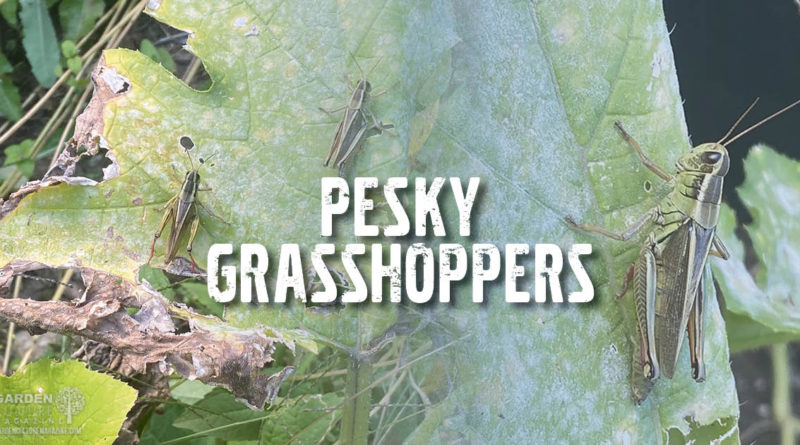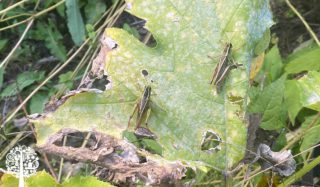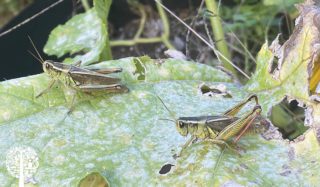Pest & Disease Control | Garden Culture Magazine
If you have a garden, then chances are you have grasshoppers! This common pest is easy to spot, jumping from plant to plant as it feeds on tender leaves. I experienced a particularly nasty grasshopper infestation in my garden last summer. By the end of the growing season, my zucchini barely had any leaves left! Luckily, there are some all-natural ways to control them.
Grasshoppers can quickly take over your garden because they reproduce quickly. They breed in grassy areas in the late summer, and the females lay up to 100 eggs in dry patches of soil. The nymphs hatch in the spring, move their way to the surface and start eating.
Grasshoppers: The Tell-Tale Signs
You know you have a pest problem when you find large holes in the leaves of your plants.
The grasshoppers at my place enjoyed the zucchini plants last year, which isn’t all that common! They must have been hungry because I was borderline embarrassed by the condition of my squash garden after they were done. These critters typically munch away on beans, carrots, corn, lettuce, spinach, and onions.
Natural Predators
Grasshoppers have a whole slew of natural predators, including humans! But if this isn’t your go-to source for protein, leave them for the birds, blister beetle larvae, coyotes, backyard chickens, praying mantids, robber flies, or soldier beetles.
Although I wouldn’t recommend attracting coyotes to the garden, planting various shrubs and trees to encourage bird activity is an excellent way to control many different pests, not just grasshoppers.
Raising free-range hens will help keep many insects under control, and you’ll get free eggs. Love it.
Other Natural Control Methods
Grasshoppers despise cilantro, calendula, and horehound, so using them as companion plants is a great deterrent.
Row covers will also help keep grasshoppers at bay, although they have been known to chew through lightweight material when what’s underneath looks particularly yummy.
You can also apply Neem or insecticidal soap to the leaves while grasshoppers are young. Nymphs are especially susceptible to these repellents.
Hopefully, one of the above tricks helps you control grasshoppers before it’s too late for your plants! For more tricks to keep every pest under the sun out of the garden, check out The Vegetable Garden Pest Handbook: Identify and Solve Common Pest Problems on Edible Plants by Susan Mulvihill.






